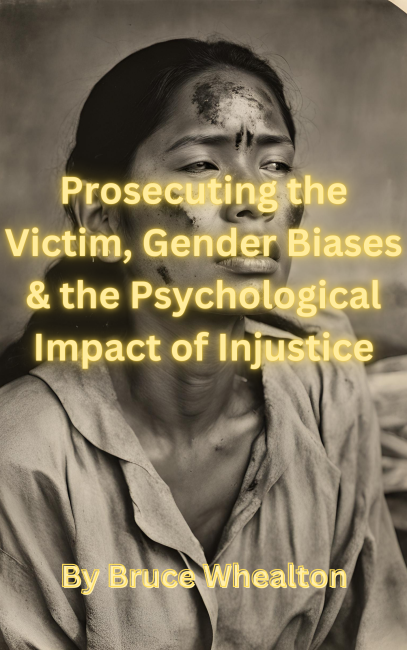Prosecuting The Victim, Gender Biases, and The Psychological Impact of Injustice

Many of you probably like me never imagined they would ever be arrested or spend time in jail. I lived according to the highest moral principles. It doesn't matter who you are or how you live your life when it comes to being accused of and charged with a crime. Not even in my worse nightmares did I imagine I would be put in handcuffs and then put in jail. I am also extremely shy and so the shame that comes with being put in handcuffs and locked in jail was even more profound for me. I worked as a therapist and had helped so many victims of trauma.
I had a profound sense of empathy and compassion for others. This is one reason why I would never cause harm to another person, in addition to having strong morals. Another reason is that a shy person like me would not want to invite that kind of shame that I could expect from violating social norms.
When I was living in Durham, North Carolina, I came to understand how I could be a victim and I could imagine calling the police as a victim. I had been mugged and threatened so many times that my sister thought I was exaggerating things.
On October 1, 2004, I did call the police after I was brutally attacked by a woman. It was shocking enough when someone I didn't know locked herself in my apartment with me and attacked me.
My attacker, the perpetrator, Ana Ensaf Amador Rizo (Vecchione), after attacking me in a flurry of viciousness, and bloody brutality, without a scratch on her went to the police and convinced them that she had been the victim and that I attacked her.
I never had an ideal relationship with my parents and sister but they said they cared about me, knew I could not be guilty but still they abandoned me.